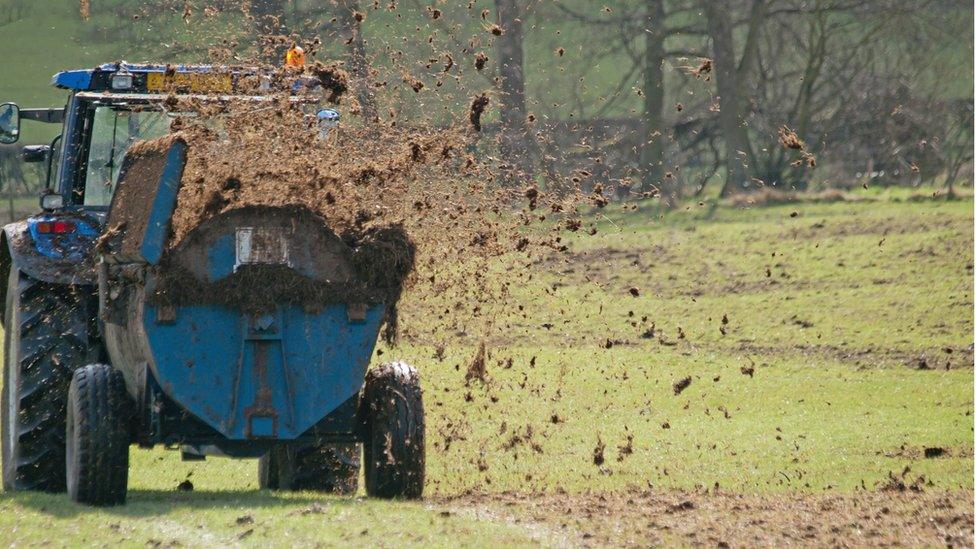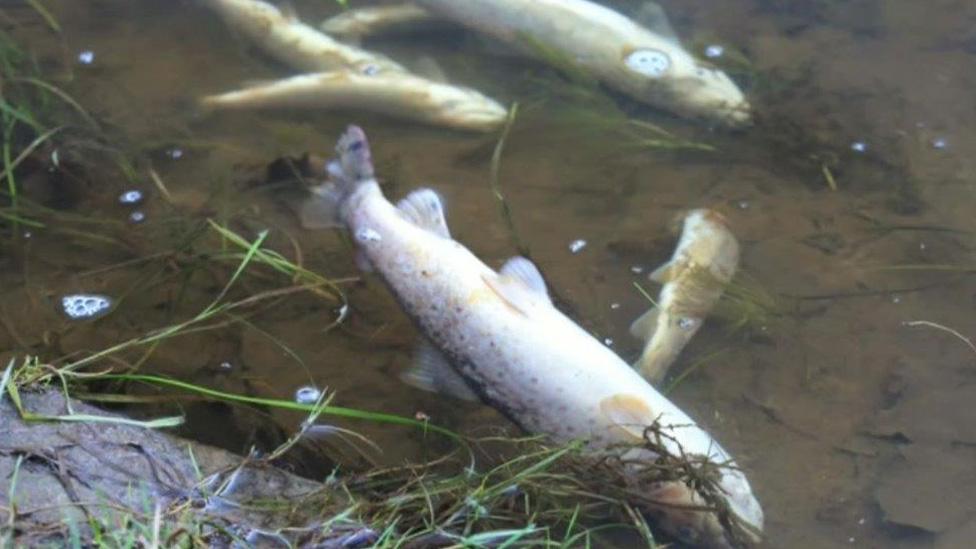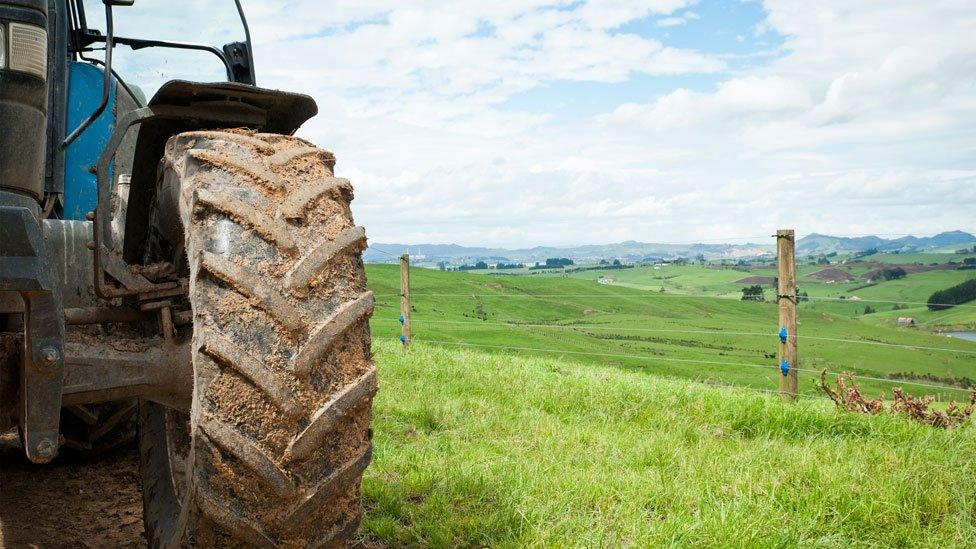Farming: New Welsh rules on reducing river pollution delayed
- Published

The proposals have met fierce opposition
Controversial rules aimed at reducing agricultural pollution in rivers are being delayed by three months, the Welsh government has announced.
Ministers will also consult on a licensing scheme giving more generous allowances for farmers spreading slurry and fertiliser on land.
They have promised to provide an extra £20m to help farmers comply.
Farming unions and opposition parties have been opposed to the all-Wales nitrate vulnerable zone (NVZ).
A Plaid Cymru source said their party had pushed Labour ministers to act.
"If we weren't in the co-operation agreement [in the Senedd] with the government, this wouldn't have happened," they said.
Minister for Rural Affairs Lesley Griffiths said the new steps "represent further significant action towards our shared aim to reduce pollution from agriculture and our continued commitment to do so in partnership with the farming community to achieve lasting results".

The Welsh government says river pollution incidents happen on average three times a week in Wales
Welsh government ministers have defended the original proposals, which control how farmers spread slurry and fertiliser, as vitally important to tackling river pollution incidents.
Speaking in February 2021, First Minister Mark Drakeford said: "The level of pollution incidents in the agriculture sphere are damaging the reputation of farmers, they are damaging our environment."
But farming unions had called the regulations "draconian" and "punitive".
In a statement on the proposed changes, Ms Griffiths said a court challenge had caused some farmers to delay preparing for the regulations.

Plaid Cymru had called on government ministers to rethink
"These preparations are now also under pressure due to the current rising cost pressures we are all experiencing, alongside the wider backdrop of the global implications of the war in Ukraine," she added.
The minister said she would delay the implementation of the annual nitrogen holding limit of 170kg per hectare for three months from 1 January 2023 to 1 April 2023.
She is also consulting on a licensing scheme to extend the holding limit to 250kg of nitrogen per hectare, which could last until 2025.
Samuel Kurtz MS, of the Welsh Conservatives, said: "I'm pleased that some progress has been made on making these NVZ regulations more proportionate, but time will tell if Plaid's cosying up to Labour will deliver for our rural communities.
"Nothing has been guaranteed by this consultation, and if the Welsh government failed to take notice of the industry's longstanding concerns on the derogation limit previously, then this could be nothing more than a desperate attempt by Plaid and Labour to salvage their reputation with the agricultural industry.
"However, we must treat this as a fresh opportunity to seek parity for Welsh farmers with our UK neighbours. The additional £20m is welcome and will go some way to helping the industry meet the wider aspects of this regulation."
Plaid Cymru's rural affairs spokesman, Mabon ap Gwynfor MS, said: "Plaid Cymru has consistently argued for a more proportionate approach that works for farmers and for better financial help to support changes.
"Today's statement will directly address these points and provide greater security to farmers and the agricultural community at a time of great uncertainty. It offers a way forward that can work for all.
"Plaid Cymru now encourages all farmers to participate in the consultation to ensure the voice of rural and agricultural Wales is heard loud and clear."
NFU Cymru said it welcomed the proposed changes, adding: "The union is pleased that through the co-operation agreement with Plaid Cymru, the government has listened to the very real concerns of Welsh farmers and has shown some recognition of the impacts that the regulations, in their original form, will have on Welsh farming's viability and the knock-on impact on the supply chain.
"The licensing component now being consulted on by government gives all interested parties more time to find a fit-for-purpose, evidence-based solution that delivers the outcomes for water quality that we all wish to see, alongside a thriving Welsh agricultural sector."

FIGHT FOR YOUR RIGHTS: The Welsh consumer show fighting for YOUR rights

- Published9 June 2021

- Published22 July 2021
